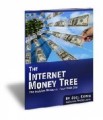
 License Type: Resell Rights
License Type: Resell Rights  File Size: 568 KB
File Size: 568 KB File Type: ZIP
File Type: ZIP
 SKU: 55023
SKU: 55023  Shipping: Online Download
Shipping: Online Download
Ebook Sample Content Preview:
How To Avoid These 7 Outsourcing Mistakes
Truthfully, most marketers make mistakes when they start to outsource. I did -but I saw it - and still do - as a learning process.
Here are 7 major outsourcing mistakes and how to avoid them:
Mistake #1: Expecting outsourcers to work the same way you do and at the same speed and level. In short - expecting them to ’be’ you...
Your work habits will not be the same as someone else's. A lot of marketers make this simple mistake and that can cause misunderstandings when you hire a freelancer to help you.
Don't expect freelancers to work as fast as you work and to know what you know. They won't. Neither would you if the shoe was on the other foot. Don't expect too much.
The solution is to make it as clear as possible what you want doing, and to show them any examples of the kind of work that you've done yourself in the past.
Don't clarify your needs verbally. That leads to oversights and costly mistakes. Write it down. This also means you can keep a copy to refer back to if there are any problems in the future.
For example: if you want specific keywords used with a precise percentage on each page, say so. If you want a certain type of keyword used, like long-tail keywords to target a specific target, be explicit in your explanation of your needs. Tell them and then ask them to explain it back to you in their own words to ensure they really do understand.
The more you share with your freelancer, the better the product you order will be when you get it. Mind reading is not normally an outsourcer's talent.
Mistake #2: Not outsourcing the correct things.
If your blog is widely read because of your 'quirky' or 'personal' style don't try to outsource this. In short don't try to outsource any part of your business that is 'you'. In my opinion this would include things like video presentations, webinars, mentoring and anything where the customer pays for 'you.
So, if you are a poor writer but a good speaker, outsource the e-book.
The ideal solution would be to dictate the e-book and then get a freelancer to transcribe it for you.
Mistake #3: Setting lax deadlines or none at all
Meeting deadlines is difficult at times for anyone, particularly those working full-time from home. When you tire of a project, your motivation to complete a project might be weakening. Your focus could be distracted by the pretty day or the desire to just sit on the couch and watch some TV. After all, you're the boss and no one is telling you what to do and when to do it.
Remember when you are hiring a freelancer that they are working from home, too, and have the same distractions and lack of motivation at times that you have. Since you are paying your freelancer, you can set clear and strict deadlines for delivery of your completed project.
If your project is large, for example 50 articles or a long e-book, set checkpoints for delivery of finished sections of your project. That will allow you to check the quality of the work while it is ongoing and give you time to make adjustments if you and your freelancer didn't understand each other at the beginning.
Tell them what you want, when you want it and what it should entail.
Then get them to explain it back to you.
Clarity is the one biggest factor that can make or break your outsourcing endevours.
Mistake #4: Not being thorough about checking the completed work
This step in the freelance process is very common with busy marketers.
The real result of not checking the completed work very carefully is the hit your reputation will take if it's got grammar errors or misspellings. The quality might not be what you expected to get from a freelancer with good recommendations.
For all you know, the freelancer outsourced the work to another ghostwriter with less skills than the one you hired demonstrated. This really shocked me the first time I came across this!
The content might not be unique and, for all you know, it might be plagiarized from another writer's product. Check for validity by using Internet services to check out the uniqueness of the content, like Copyscape.
You're not being suspicious - you're protecting your business.
Another valuable, free technique is to take a couple of sentences from your ebook or article and search for it on Google. If Google returns hits, you possibly have a plagiarized product.
Some freelancing communities or groups use an escrow account to protect both the freelancer and the marketer from unethical behavior. Most freelancers will accept 50% upfront and the rest upon delivery.
The buzzwords for this mistake are: Check! Check! Check!
Mistake #5: Not treating a good freelancer like gold
You will not find good freelancers on every corner of the Web. When you do find one that meet your requirements, fits your style and understands your needs, keep them happy with you. Freelancers with those qualities will be difficult to find.
Some clients act like they are the boss in a normal business when they hire a freelancer. Most freelancers work full-time for themselves for the same reason you do.
The message here is to treat your freelancer like a treasured part of your business and not like an hourly employee. Normal praise is nice to hear for good work. If you need some part of your project adjusted, don't blanket criticize the freelancer, but point out the areas that need some improvement and give them time to do it. If you provide an occasional small cash reward or quality work, you will have a loyal freelancer who will make sure your interests are taken care of.
Don't accept shoddy work from any freelancer you hire though. It's your business and reputation that will suffer.
Mistake #6: Believing that quality is guaranteed by a high price
It is a common human belief that the good stuff costs more. That might apply to automobiles and wine, but not necessarily to ghostwriting and computer programming.
- File Size:568 KB
- License: Resell Rights
- Category:Ebooks
- Tags:2015 Ebooks Resale Rights







